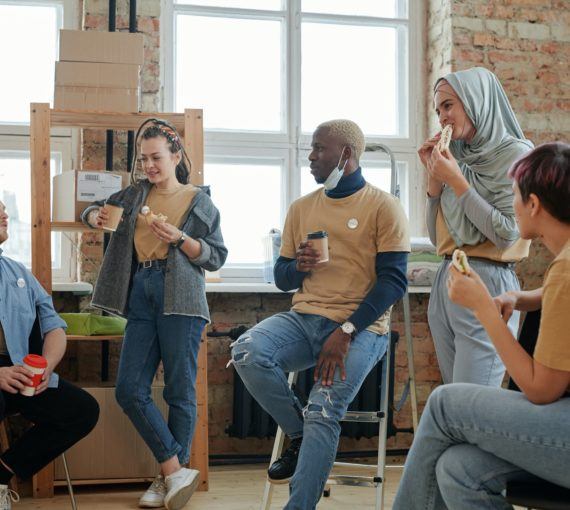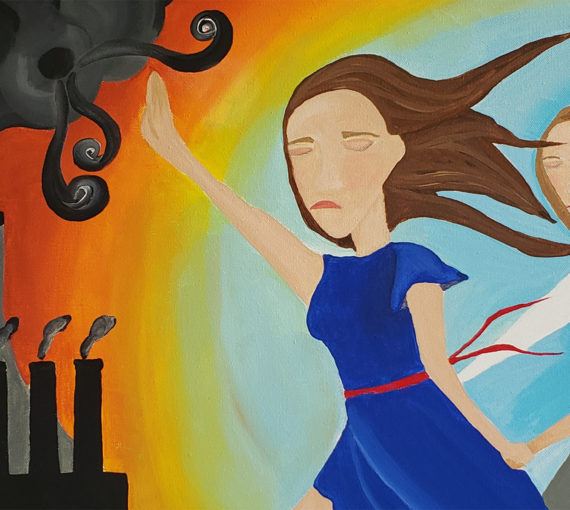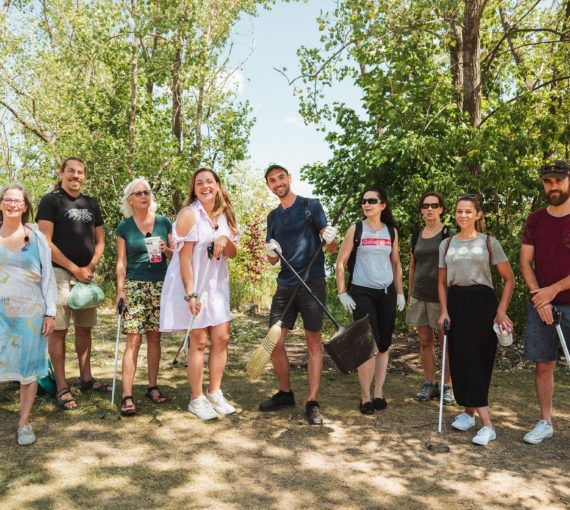
Recently we asked the David Suzuki Foundation community to help us shift the narrative by asking, “What is one thing we can agree on?” Then we listened. This is what we heard.
Today’s world is divided in ways we couldn’t have imagined even a decade ago. Misinformation is rampant. Social media has become a polarized battlefield. Difference of opinion is severing relationships.
It’s hampering action on climate change because it’s causing fractures within communities that need to come together to address this existential threat.
So where do we go from here? If we want to build a better future, we need to focus on easing those divisions. Social psychologists say the key is open listening and finding areas of agreement.
In the spirit of listening, and shifting the focus from what divides us to what unites us, we asked people in the David Suzuki Foundation community what we can all agree on. Here is some of what we heard, along with our reflections.
Many people got back to the basics:
- Health, safety, stability, sustainability and happiness — for all life on Earth — matters.
- We want to leave a safe and healthy planet for future generations of humans and all other life on Earth.
- We need to come together, unite as neighbours and call on those in power for transformative change if we want to leave a safe and healthy planet for future generations of humans and all other life on Earth.
Others brought up the stress of the pandemic, wealth inequality and mental health:
- The pandemic has caused stress, anxiety, financial trouble and tragedy for all Canadians.
- There is a nationwide housing crisis and massive wealth inequality, which the pandemic just exacerbated and took our focus away from. These problems, intertwined, are getting worse by the day, and I’m sure everyone can see them in their own communities.
- I think most agree that inequality is too high, and corporations shouldn’t be running the country. Tax the rich.
- One thing that we can agree on is that we’re all tired of the pandemic. Everyone.
We all want to have a level of safety, comfort and predictability in our world — but we are all afraid we are not on the right path to it and that we are powerless and it makes us all defensive, angry and righteous.
People are tired and angry about how hard it’s become just to get by. The pandemic put a glaring spotlight on social inequalities and injustices, and two years of isolation tested the strength of our social fabric. At first there was hope that the pandemic would force us to rethink our societal structures and level the playing field; instead, the ultra-rich got far richer as working-class struggles deepened.
One person wrote, “We all want to have a level of safety, comfort and predictability in our world — but we are all afraid we are not on the right path to it and that we are powerless and it makes us all defensive, angry and righteous.”
Another commented on Facebook, “I think we can agree that you will never have a reasoned conversation in the comments section on Facebook.” While the comment was tongue-in-cheek, it speaks to the role social media plays in depersonalizing communication and fuelling division.
Some even disagreed that we should try to agree. “Agreement is, obviously, unnecessary to resolve or worsen a problem,” wrote one person. “The world we live in was not brought to this point through consent or agreement. Exclusively focusing on consensus first is what keeps projects from manifesting. If the intent here is to propagate more talk, this is a good way to do that.”
Others emphasized that we shouldn’t waste our time or even try to come to agreement with racists, extremists and conspiracy theorists. Of course, we must not validate or normalize hate, racism or violence. We’re not looking for consensus or bridge-building with extremists and haters.
The aim is to build constructive dialogue and work toward a better world with others who share our values — our neighbours, our friends, our families. If we sever relationships over differing opinions, we risk fracturing the movement when we most need unity, strength and growth. Instead, let’s focus on finding and cultivating common ground.
Learn to find common ground with these resources for more constructive conversations.


